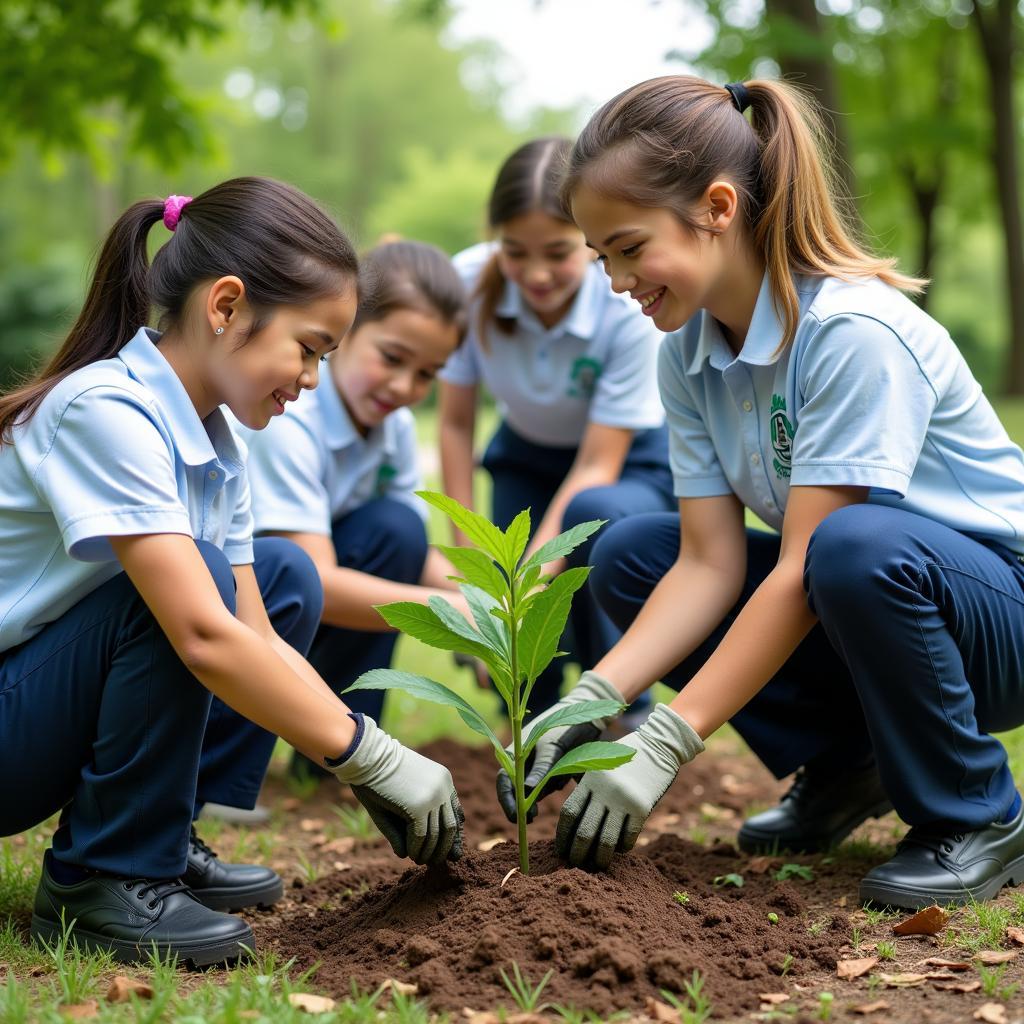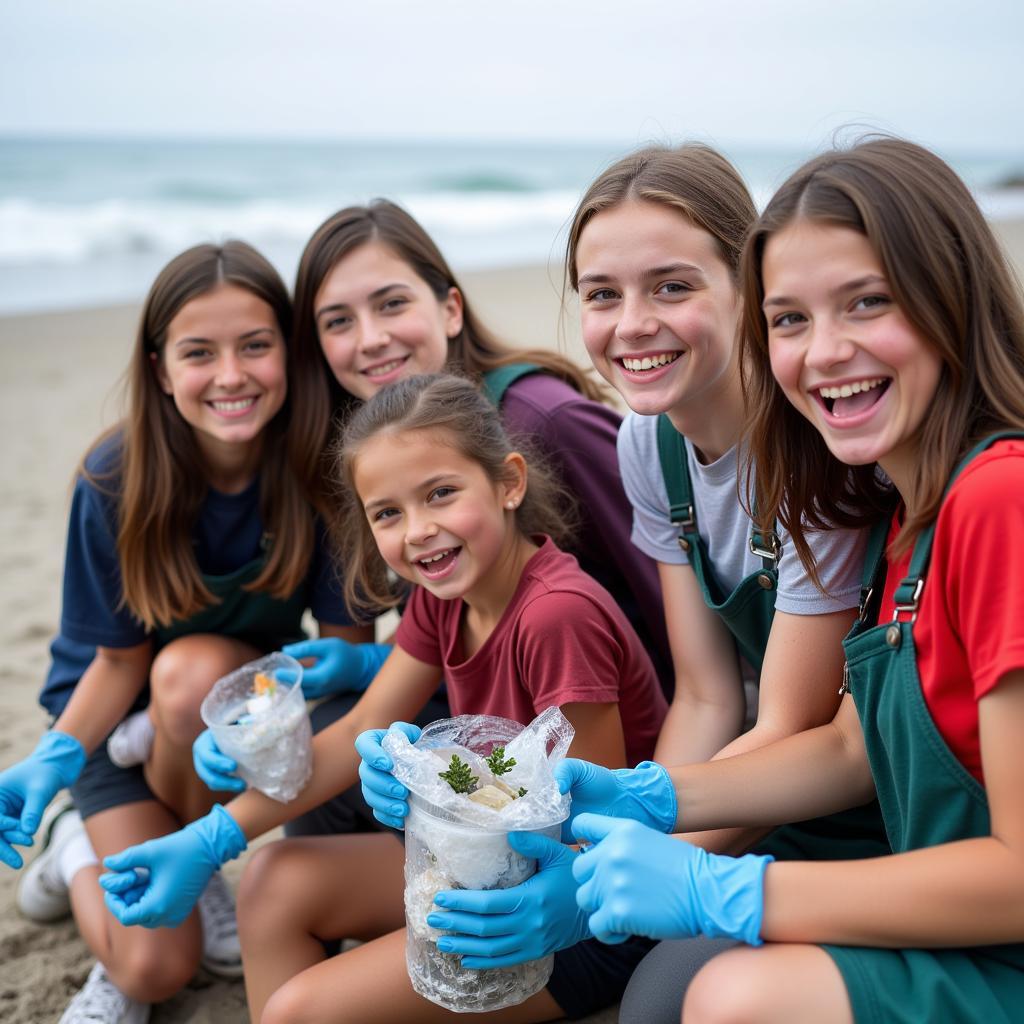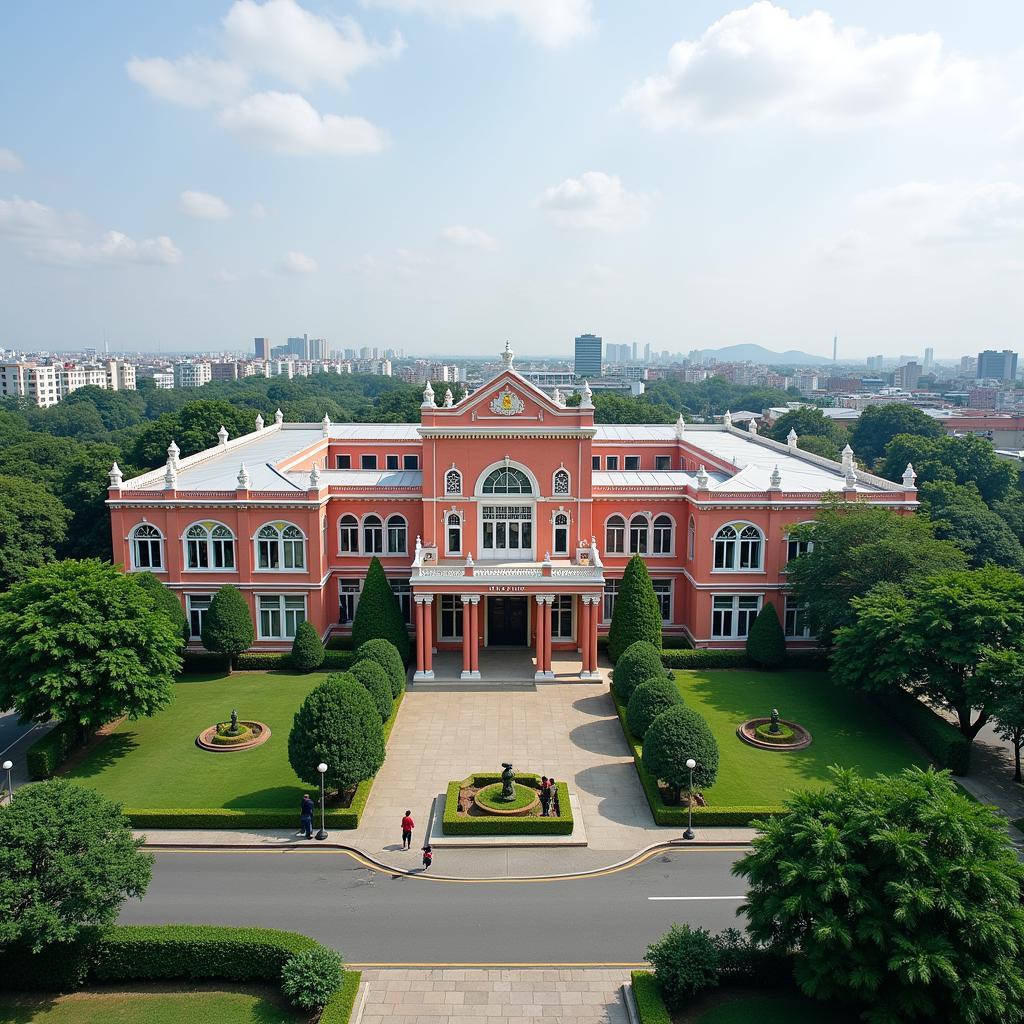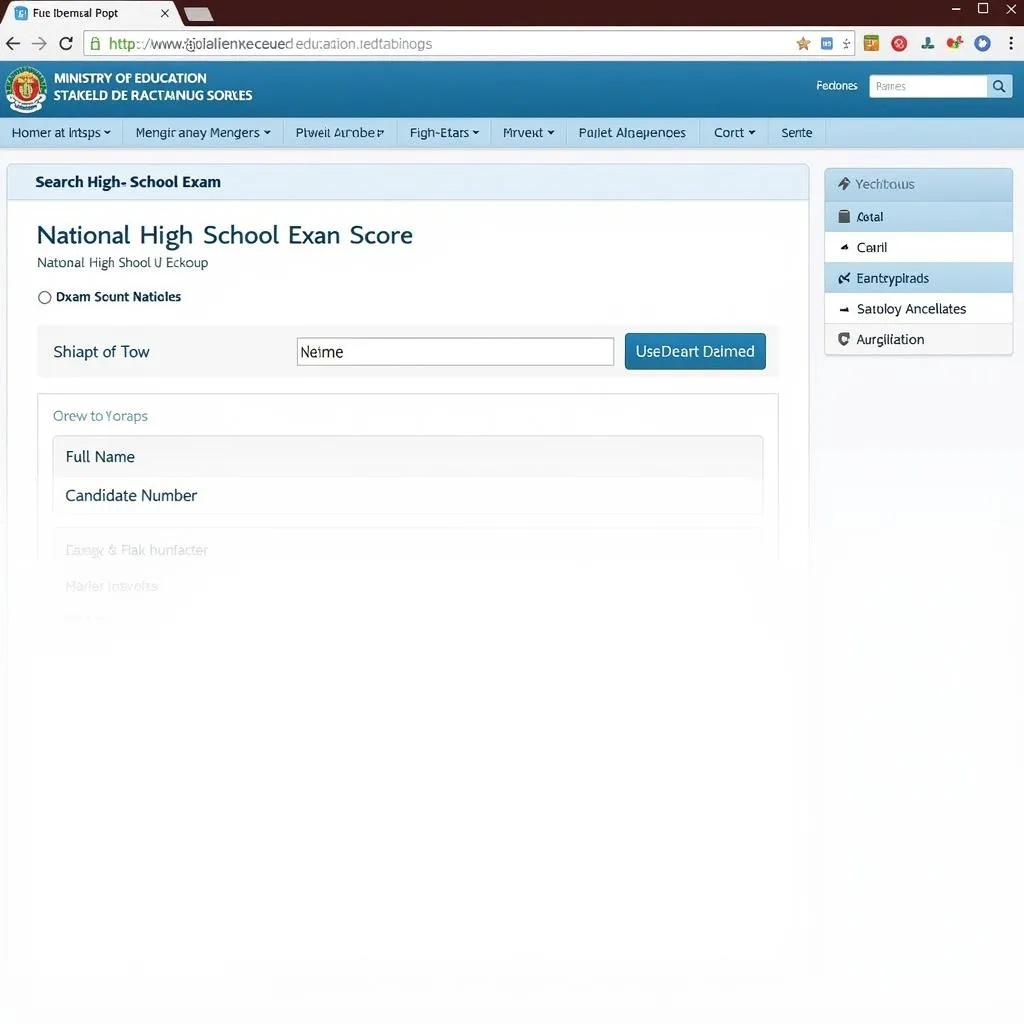Protecting the environment is a global responsibility, and being able to discuss it in English allows you to join a worldwide conversation about sustainability. Whether you’re preparing for an English test, writing an essay, or simply want to expand your vocabulary, this guide will equip you with the language skills and knowledge to talk about environmental protection effectively in English.
Understanding Key Environmental Issues
Before diving into solutions, it’s essential to understand the challenges we face. Here are some key environmental issues and their English translations:
- Ô nhiễm không khí (Air pollution): This refers to the contamination of the air by harmful substances, like emissions from vehicles.
- Biến đổi khí hậu (Climate change): This term describes the long-term changes to the Earth’s climate, including rising temperatures and more extreme weather events.
- Rác thải nhựa (Plastic pollution): This issue highlights the problem of plastic waste accumulating in the environment, harming wildlife and ecosystems.
- Nạn phá rừng (Deforestation): This is the clearing of forests for other land uses, leading to habitat loss and reduced carbon absorption.
- Ô nhiễm nguồn nước (Water pollution): This signifies the contamination of water bodies like rivers, lakes, and oceans with harmful pollutants.
Simple Actions, Big Impact: How You Can Protect the Environment
Even small changes can make a significant difference. Here’s how you can contribute to a healthier planet:
- Reduce, Reuse, Recycle (3Rs): This catchy phrase emphasizes minimizing waste. Reduce your consumption, reuse items whenever possible, and recycle materials like paper, plastic, and glass.
- Conserve Water: Be mindful of your water usage. Take shorter showers, fix leaky faucets, and consider water-efficient appliances.
- Choose Sustainable Transportation: Opt for walking, cycling, or public transportation instead of always relying on cars to reduce your carbon footprint.
- Plant Trees: Trees absorb carbon dioxide and release oxygen, making them essential for combating climate change. Participate in tree planting initiatives or simply plant one in your yard.
- Educate Others: Share your knowledge about environmental issues and solutions with your friends, family, and community.
 Students Planting Trees
Students Planting Trees
Useful Vocabulary for Discussing the Environment
Expanding your vocabulary will enable you to express your ideas about environmental protection more effectively:
- Sustainability (Sự bền vững): Meeting present needs without compromising the ability of future generations to meet their own needs.
- Carbon footprint (Dấu chân carbon): The amount of greenhouse gases released into the atmosphere by a person, organization, or product.
- Renewable energy (Năng lượng tái tạo): Energy derived from sources that replenish naturally, such as solar and wind power.
- Conservation (Bảo tồn): Protecting and managing natural resources for present and future generations.
- Ecosystem (Hệ sinh thái): A community of living organisms and their physical environment interacting as a system.
Speaking Up for the Planet
Practice using these phrases to express your views on environmental protection:
- “It’s crucial that we protect our environment for future generations.”
- “We need to find sustainable solutions to combat climate change.”
- “Everyone has a role to play in reducing plastic pollution.”
- “We must raise awareness about the importance of conservation.”
Conclusion
Protecting the environment is a collective effort that requires action from individuals, communities, and governments worldwide. By learning how to discuss these issues in English, you can contribute to a global conversation and inspire others to take action. Remember, even small steps can make a significant impact. Let’s work together to create a healthier and more sustainable future for all.
FAQs
1. What are some other ways to reduce my carbon footprint?
2. How can I get involved in environmental initiatives in my community?
3. What are some examples of renewable energy sources?
4. How does deforestation contribute to climate change?
5. What are the consequences of plastic pollution in the oceans?
For further information and resources on mã trường đại học kiên giang, you can visit our website. You might also be interested in reading about đề thi vào 10 trường thpt nguyễn tất thành
 Students Participating in Environmental Activities
Students Participating in Environmental Activities
Remember, every effort counts! Let’s protect our planet together.
For any further assistance, please contact us at Phone Number: 02223831609, Email: thptgiadinh@gmail.com Or visit us at: Đ. Nguyễn Văn Cừ, Trang Hạ, Từ Sơn, Bắc Ninh, Việt Nam. We have a 24/7 customer support team.





